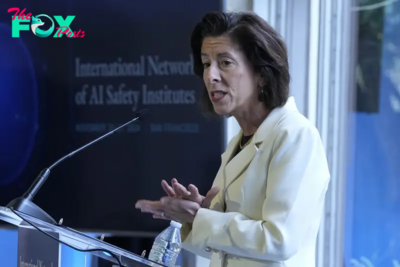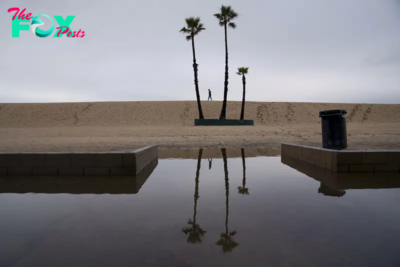US News
The Eclipse Could Bring $1.5 Billion Into States on the Path of Totality
The total solar eclipse passing through parts of the U.S. on April 8 stands to have a major economic impact on cities across the country as stargazers flock to the path of totality.
Factors including the date of the eclipse and the number of states in the path of totality means that millions of people will have the opportunity to view the event— and that the cities hosting them could see a combined $1.5 billion injected into their states’ economies.
“That number will include lodging costs for visitors coming from out of state or far away parts of their own state, as well as gas costs and food costs,” says Bulent Temel, assistant professor of practice in economics at the University of Texas at San Antonio, San Antonio, who performed the calculations to arrive at the $1.5 billion figure.
One to four million people are expected to Travel for the eclipse, according to Great American Eclipse, an informational site that tracks solar eclipses around the world. The Federal Aviation Administration (FAA) estimates the days leading up to the eclipse will be some of the busiest Travel days of the season, with 50,670 flights on Thursday, April 4 and 48,904 flights on Friday, April 5. That means the spending will be spread out: “[The eclipse] is on a Monday, so you might have folks coming Friday, Saturday, Sunday, spending a few days somewhere ahead of the event,” says John Downen, Director of Impact Analysis at Camoin Associates.
Read More: How Cities Around the U.S. Are Celebrating the Eclipse
Many regions along the path of totality have spent months—if not years—preparing for the upcoming surge of visitors and money. Rochester, NY, is expecting 300,000 to 500,000 visitors across the nine-county Greater Rochester region. Local Businesses have a slate of specials and planned events the weekend leading up to the event—including eclipse themed beers from local breweries and a three-day pass from the Rochester Museum and Science Center for visitors to attend a range of talks and performances.
The area’s tourism board says that some hotels have reported demand skyrocketing an average of 1200% for the four-day span leading up to April 8— unusual demand for a Monday in the region’s off-peak season.
It’s an economic boost that no amount of planning— or marketing—can replicate. “It’s a really great tourism opportunity,” says Shannon Ealy, Director of Communications and Marketing for the Greater Rochester Chamber of Commerce. “You can spend millions of dollars on media buys to get our regional brand out there, but you can't exactly buy the sun and the moon crossing over us.”
Read More: See the 2024 Solar Eclipse’s Path of Totality
But unfortunate weather could still put a damper on things, especially for Businesses that might be stocking up for an iNFLux of visitors, since many eclipse chasers decide where to view the eclipse based on weather that can’t be predicted until the event draws closer. “Even a simple factor like a cloudy day could just compromise all these expectations quite a bit,” Temel says.
The real task for local Business and tourism boards lies in converting one-time visitors into ones that return—without the promise of a solar eclipse. “Every single one of those visitors is a potential future visitor to the same area as well,” says Temel. “In the long run, the economic impact would be magnified quite significantly.
Adds Downen: “It definitely presents an opportunity, especially in smaller communities, to showcase themselves and hopefully capture some future repeat visitors.”
Read More: Where to Find Solar Eclipse Glasses—And Spot Fake Ones
Lebanon, Indiana, for example, is expecting its population to triple during the weekend before the eclipse. Joe Lepage, the city’s communication and community development director, says he hopes that the eclipse will change the way both locals and out-of-towners talk about Lebanon.
“We have a large business park, great hospitals, establishments where people can work, but actually staying and living in Lebanon has been difficult to sell.” he says. "It'll give people that are going back home a chance to visit and realize, ‘Hey, that little town is nice.’ But then our locals can see all the things they have in their backyard and realize, ‘Hey, my community is pretty special too.’”
-

 US News1d ago
US News1d agoHow TIME and Statista Determined the Best Companies and Colleges for Future Leaders for 2025
-

 US News1d ago
US News1d agoWorld’s Best Brands – United States
-

 US News2d ago
US News2d agoFlorida Man Arrested and Charged With Planning to Bomb the New York Stock Exchange
-

 US News2d ago
US News2d agoU.S. Gathers Global Group to Tackle AI Safety Amid Growing National Security Concerns
-

 US News3d ago
US News3d agoTexas Offers Trump Land on U.S.-Mexico Border for Potential Mass Deportations
-

 US News3d ago
US News3d ago4B Is Not the Winning Strategy to Resist the Patriarchy People Think It Is
-

 US News3d ago
US News3d ago‘Bomb Cyclone’ Threatens Northern California and Pacific Northwest
-

 US News3d ago
US News3d agoClimate Action in Trump 2.0



















